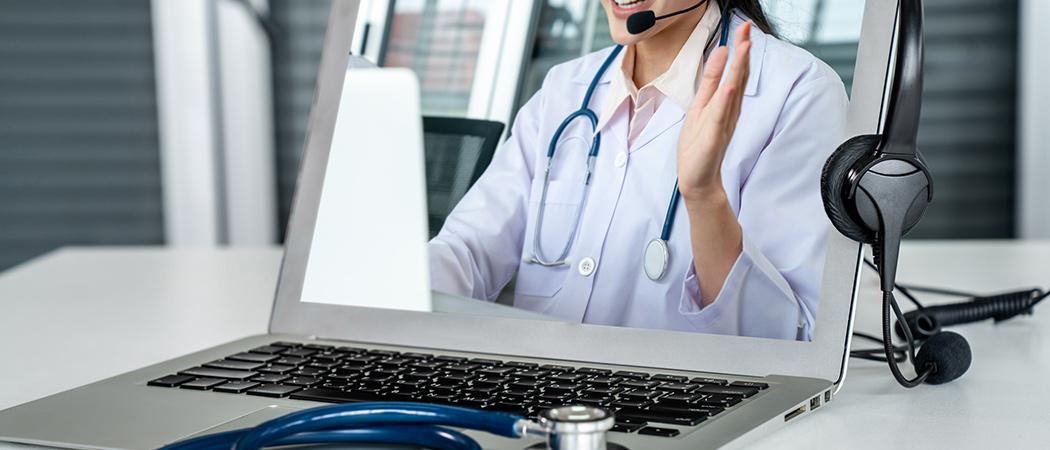Project looks to connect post-op and pre-op patients with one another and with doctors

Organ transplants are miracles of modern medicine that save tens of thousands of lives in Europe every year. But the new life granted to transplant patients comes at a cost: they must spend the rest of their lives taking drugs to suppress their immune systems, which would otherwise attack the foreign organs. The surgery itself is also difficult and stressful: seventy years after the first successful organ transplant, it remains one of the most complicated operations that surgeons carry out.
That’s why a team of five doctors and scientists in France, the Netherlands, and Poland are working on a new tool to aid transplant patients through their difficult, but life-saving journey. The New Life project aims to develop a mobile app that will support transplant patients—including those awaiting surgery and those who’ve already been through it—as well as doctors. The app will include a private social media platform where members can post thoughts and questions, in addition to a chatbot audited by medical professionals that can answer patients’ questions, or refer them to a doctor, if necessary.
On Saturday, 9 October, New Life won first prize at a hackathon initiated by the European Society for Organ Transplantation (ESOT), a medical association of transplant doctors and patients founded in 1982 "it was organized in partnership with the Blue Health Innovation Centre in Belgium and supported by EIT Health Alumni and Chiesi Pharmaceuticals". The hackathon was designed to emphasise “the importance of bringing doctors and patients together,” says Ariane Brusselmans, project director at ESOT. All too often, she notes, the focus is on the transplanted organ and the medical procedure, not the concerns of the patient. “We really want to talk about people with transplants; it’s not about the organ, it’s about the person,” she says.
New Life is led by Vincent Karam, a clinical researcher and member of the scientific committee and governing board of the European Liver Transplant Registry (ELTR), which is part of the European Liver and Intestine Transplant Association (ELITA), a section of ESOT. Karam says the app would be offered to new patients being enrolled on the organ transplant waiting list, while those who’ve already received new organs will be offered it when they come in for a check-up.
Asking and answering questions around the clock
New patients awaiting transplants “will have a possibility to share their concerns and to ask questions of those who have already had transplants,” Karam explains. “It’s like social media, like a network, but this one will be closed and only observable to those patients,” as well as to approved doctors. “They will also have access to a chatbot, 24/7.” The chatbot can ask the patient serial questions to determine exactly his or her needs, in addition to answering the patient’s questions—such as how to take a particular medication, or where to obtain it on foreign travels. “The chatbot will contain only information that has been, of course, controlled and validated beforehand by the medical steering committee,” Karam says.
“The interaction between patients waiting for transplantation and those who’ve had transplants is really fundamental,” stresses Christophe Duvoux, professor of hepatology (the study of the liver) at Henri Mondor University Hospital in Paris. “The medical team provides some information to the patient, which is not exhaustive,” he notes—whereas direct contact with post-op patients will address questions that might otherwise be left unanswered.
Another idea is for the app to support remote video consultations between patients and doctors. “With covid, we cannot make consultations directly, face-to-face,” says team member Eric Buleux-Osmann— doctor; liver transplant recipient; and vice president of Transhépate, a French association for liver transplant patients. Because transplant patients’ immune systems are suppressed, COVID-19 poses far greater risks to them than to the average person. A survey of 170 patients revealed many were ready to use tele-conference tools for consultations, Buleux- Osmann says.
Raising funding and finding IT expertise
The New Life team plans to start with liver transplant patients in France, then expand to other organs and other countries. But first they need a prototype: the hackathon was an opportunity to pitch the initial idea. “For the first time, we verbalised our project and showed it to the public,” says Wojtek Polak, liver transplant surgeon at the Erasmus University Medical Centre in Rotterdam. “Now it’s time to make a budget, to contact IT companies—since we don’t have any IT background, so we need really help of the people who know how to develop such an application,” he adds. Once it has secured the necessary funding, the team can figure out a time frame for the app’s development.
ESOT’s hackathon differed from the typical two-day hackathon, where coffee and pizza-fuelled participants work intensively on finding technical solutions to challenges. Contestants had four months to work on their idea, with coaching from business-savvy experts.
New Life’s coach was Giancarlo la Pietra, education manager and trainer at the University of Milan Bicocca, EIT Health evaluator and a member of the Harvard Business Review Advisory Council. “It was great because he’s not involved in medical community, so he has a totally different perspective,” says Justyna Gołębiewska, another member of the New Life team and professor of nephrology (the study of the kidneys) at the Medical University of Gdansk.
For winning first prize in the hackathon, New Life receives €1,500. Two runners-up will receive €1,000 and €500, respectively. Second prize went to Living Airlines, which proposed another support app for transplant patients, and third prize went to Transplant Recycling Initiative for the Environment (TRIE), an initiative to recycle the packaging for the many pills transplant patients have to take.





 A unique international forum for public research organisations and companies to connect their external engagement with strategic interests around their R&D system.
A unique international forum for public research organisations and companies to connect their external engagement with strategic interests around their R&D system.